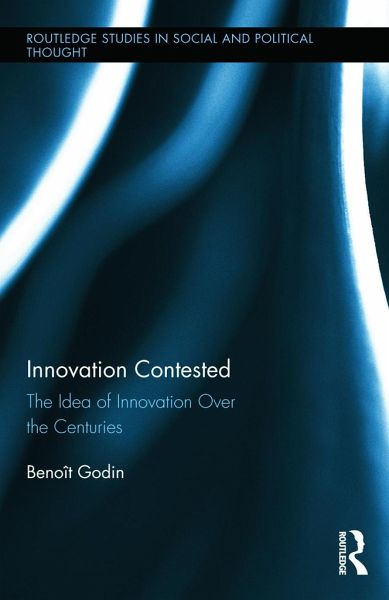
Innovation Contested
The Idea of Innovation Over the Centuries
Versandkostenfrei!
Versandfertig in 6-10 Tagen
138,99 €
inkl. MwSt.
Weitere Ausgaben:

PAYBACK Punkte
69 °P sammeln!
Innovation is everywhere. In the world of goods (technology), but also in the world of words: innovation is discussed in the scientific and technical literature, but also in the social sciences and humanities. Innovation is also a central idea in the popular imaginary, in the media and in public policy. Innovation has become the emblem of the modern society and a panacea for resolving many problems. Today, innovation is spontaneously understood as technological innovation because of its contribution to economic "progress". Yet for 2,500 years, innovation had nothing to do with economics in a positive sense. Innovation was pejorative and political. It was a contested idea in philosophy, religion, politics and social affairs. Innovation only got de-contested in the last century. This occurred gradually beginning after the French revolution. Innovation shifted from a vice to a virtue. Innovation became an instrument for achieving political and social goals. In this book, Benoit Godin lucidly examines the representations and meaning(s) of innovation over time, its diverse uses, and the contexts in which the concept emerged and changed. This history is organized around three periods or episteme: the prohibition episteme, the instrument episteme, and the value episteme. Innovation as a concept derives from Ancient Greece and indicates political change, with a 'revolutionary' connotation. Three "orders" challenged innovation, namely the political, the religious and the social (or socio-economic) order. Innovation was used rather by the authorities to control change, and by critics for accusatory and polemical purposes. The concept shifts from one of blame to one of praise. It is no longer considered subversive of the established order, but rather instrumental to scientific, social and, in the twentieth century, economic "progress". An insightful and intelligent treatment innovation, this book will appeal to a wide number of fields beyond political science, including sociology, history, philosophy and economics.













